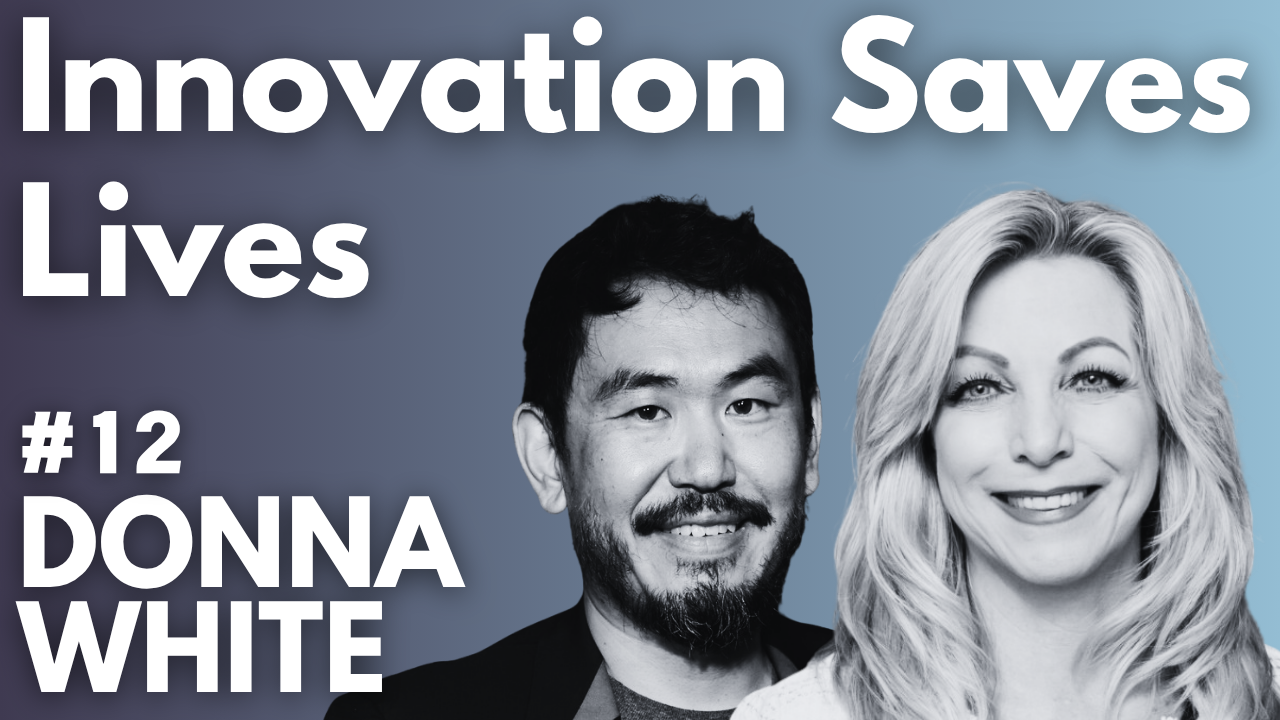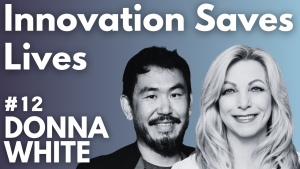Mastering the art of saying “no” is a crucial skill for maintaining mental health and practicing self-advocacy. This article explores valuable lessons on setting boundaries, prioritizing commitments, and empowering oneself through expert insights and practical strategies. Discover how to protect your core needs, balance team dynamics, and uphold your values while effectively managing your time and energy.
- Set Boundaries to Prevent Burnout
- Prioritize Your Time and Commitments
- Empower Yourself Through Clear Boundaries
- Protect Your Core Needs
- Redirect Requests to Maintain Standards
- Trust Your Judgment and Learn
- Establish Clear Business Hours
- Balance Team Needs with Client Demands
- Uphold Core Values When Saying No
Set Boundaries to Prevent Burnout
For years, I struggled with people-pleasing, and I cringed at the thought of saying “no.” However, through my lessons of hitting burnout and working with coaching clients, I’ve learned the hard way that you cannot be and do all things and thrive. Long-term, chronic people-pleasing is a recipe for exhaustion and burnout because you are always placing everyone else’s needs above your own.
People pleasers are naturally helpful, generous, agreeable, and peace makers — who have spent years tending to the needs of others often to their own detriment. Because of their kind hearts and generosity, they can be easily taken advantage of by others. Doing too much can also enable others.
Left unchecked, people pleasing can lead to:
- Resentment that builds up over time
- Neglecting your own needs
- Lack of confidence
- Overwhelm, chronic stress, and burnout
Recently, I worked with an education leader who is incredibly kind and genuinely enjoys helping others. Because of her kindheartedness, she struggled to say no — which was adding to her overflowing workload, elevating her stress, and causing her migraines and IBS flare-ups.
We worked together on practical stress management strategies and her support system at work; who could help keep her accountable in maintaining healthy boundaries. She enlisted the help of a close colleague and one day shared something life-changing she said to her. Her coworker said to her, “You need to stop snow shoveling the driveways of people who are perfectly capable of doing it themselves.”
That powerful phrase helped her to slowly build her confidence in saying no to projects that were not her responsibility and did not need to be on her plate. Once her stress levels lowered, her digestive issues and migraines subsided, and her energy levels increased. Her story is a powerful reminder of how the mind and body are connected and that one affects the other.
Learning to say no has been a process and journey for me, and I love this quote from Anne Lamott: “No is a complete sentence.”
A few ways to gracefully say no:
- No thank you.
- I’m sorry, I’m at capacity and cannot add anything else to my plate.
- I’d love to get together but my schedule is full. How about next month?
- I’m honored you asked but I’ll have to pass.
- Let me check my calendar and circle back.
- Let me check [with my family or partner] to see if we have plans that day.
“You have one life — don’t spend it breaking yourself to please others.” — Alex Mathers
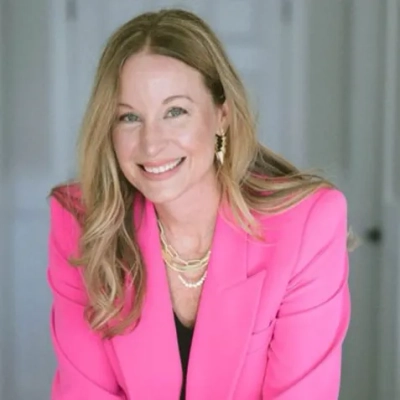 April Likins
April Likins
Board-Certified Health Coach | Trained at Duke | Stress & Work-Life Balance Speciality, Wellness With April, LLC
Prioritize Your Time and Commitments
“Saying no is not rejection, it is PRIORITIZATION”
A couple of years ago, I realized I was crushed under a pile of obligations such as saying yes to every request, meeting every request to be helpful, and attending community health forums I wasn’t needed at. I defended it to myself as “good leadership,” but in reality, I was afraid to say no.
One tipping point was when I could not attend a vital strategy session due to a commitment to attend a ceremonial luncheon. That moment made me reevaluate things. The politeness I displayed – especially to elders and peers I admired – came at the expense of clear thinking and dynamic leadership. I began to draw lines, gently but firmly, and that single change not only cleaned up my calendar but also sharpened my clarity and mental bandwidth.
To anyone who grapples with people-pleasing: Saying no is not rejection, it is PRIORITIZATION. One thing that works for me is the phrase: “I’d love to support, but I have to honor my commitments right now.” It’s respectful, clear, and places the emphasis on values over ego. Your time is your most potent weapon, so protect it like it matters, because it does.
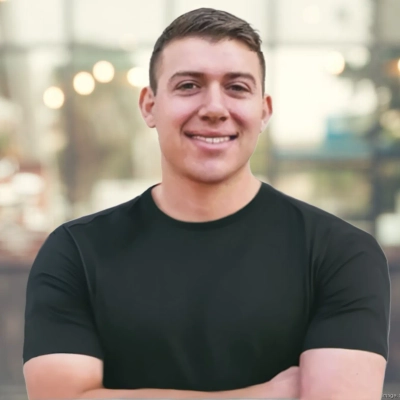 Jeremy Gurewitz
Jeremy Gurewitz
Co-Founder & CEO, Solace Health
Empower Yourself Through Clear Boundaries
I was a people pleaser for most of my life—and as a ’90s baby, that conditioning ran deep. In 2019, I was mentally struggling and overwhelmed in every area of my life. When the pandemic hit in 2020, things only got worse.
At the time, I was a new small business owner, and the post office began losing packages frequently. Customers started questioning not only the integrity of my business but also my character. Scamming was prevalent, everyone was impatient, and even though I was following the proper USPS claims process, I began refunding customers and replacing packages out of my own pocket. I became completely depleted—mentally and financially.
One day, a customer asked for yet another refund, but I had already sent a replacement package to her daughter with double the original order. I firmly told her, “No.” It was the first time I had said it so assertively, and I honestly felt defeated in that moment. However, a week later, her daughter came back to thank me for the replacement, and the mother actually apologized.
It was at that moment that I realized I needed to set clear boundaries. My “No” had to be empowering for me, and I decided that no one would ever make me feel guilty for it again. Now, as a retired people pleaser, my mental health has improved significantly. That experience became my anchor, and anytime I need a reminder, I go back to that lesson.
To anyone struggling with people-pleasing, I’d say this: saying “No” doesn’t mean you’re unkind—it means you’re clear. Boundaries protect your energy and your peace. When you honor your own value, everyone else has no choice but to honor it, too.
 A.D. Marshall
A.D. Marshall
Founder | Executive Director | Chairwoman, 3ive Society Women’s Club
Protect Your Core Needs
I recently had a moment that completely shifted how I think about saying no. I run a small business that I am working to grow, and a great potential partner approached us about creating content together. It would have genuinely been a win-win, but they needed it in the next few weeks. There was a time when I would have said yes, because helping people felt like the “right” thing to do, especially when it was in service of my business too. But I looked at my schedule and reality: I’m building a company with other priorities, planning a wedding, traveling, plus dealing with some health issues. So I said no. The relief was instant – like a physical weight lifting off my shoulders.
I have learned over time that my chronic people-pleasing isn’t actually helping anyone, especially when these asks came at the expense of my well-being. Here’s what I’ve learned about protecting your well-being: think of your needs as ropes, not fences. A fence is rigid and can feel harsh or offensive to people when they bump up against it. But ropes move and shift with what’s happening around you – they’re flexible boundaries that adapt to your neighborhood and circumstances while still protecting what matters.
Your basic requirements like time off, workouts, eating well, and free time for your own projects need this rope-like protection. Once you dip into those core needs to please someone else, you’re actually doing them a disservice. You’ll either deliver subpar work because you’re operating at half-capacity, or you’ll do it while feeling resentful – and people can sense that energy whether you voice it or not. So get clear on what you truly need, and never let your “yes’s” to others steal from those basics.
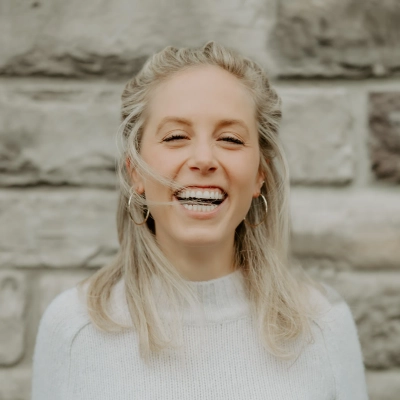 Lissy Alden
Lissy Alden
Founder + CEO, MYNDY
Redirect Requests to Maintain Standards
As the founder of Ignite Digital, saying “yes” to every client request once felt like part of the job. But it nearly broke me. I vividly remember our partnership with Mes Amis Barbershop. Their growth expectations were skyrocketing, but their budget and readiness weren’t aligned. We had to choose: bend our team to fit or hold our standards. I chose the latter and said “no” to the original scope. Ironically, that boundary earned their respect, and when they were ready, they re-engaged under the right terms. The result? A 280% increase in local traffic and a 5-star Google rating surge once we had the right framework in place.
Saying no isn’t rejection; it’s redirection. The U.S. Office of Personnel Management cites boundary setting as one of the top strategies for long-term professional resilience. My advice to people-pleasers: if your “yes” costs your peace, it’s a “no.” Protect your mental bandwidth like it’s your most valuable client because it is.
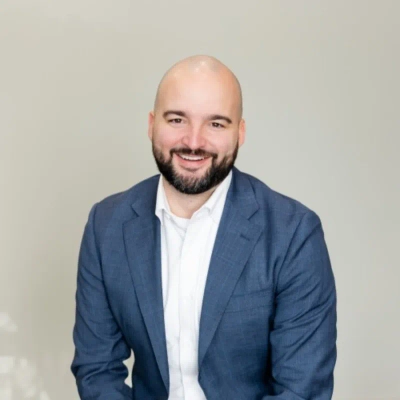 Matthew Goulart
Matthew Goulart
Founder, Ignite Digital
Trust Your Judgment and Learn
While building my business and adjusting to life with newborn twins, I was flooded with advice from other business owners, parents, and friends. Most of it was well-meaning, but a lot of it conflicted or just wasn’t realistic at the time. I found myself trying to follow it all to avoid disappointing anyone.
Eventually, I realized I was putting too much pressure on myself to get everything right. I wasn’t trusting my own judgment. Saying no to advice that didn’t fit gave me clarity and confidence. You don’t have to please everyone. Trust what works for you and be willing to make mistakes. That’s how you learn and protect your mental space along the way.
 Ben Southall
Ben Southall
Co-Founder, Talked
Establish Clear Business Hours
I used to take calls at all hours from people wanting immediate vehicle pickups: weekends, evenings, even holidays. I thought being available 24/7 would give us an edge over competitors. Instead, it wrecked my personal time and made me resent customers who expected instant service at their convenience, not mine.
The breaking point came when someone called at 10 PM on a Sunday demanding we pick up their car first thing Monday because they “couldn’t wait.” I drove out there that night, only to find they just wanted to avoid missing work the next day. I realized I was training customers to treat our business like an emergency service when most situations weren’t actually urgent.
I started telling customers our pickup hours are 8 AM to 5 PM, Monday through Saturday, with rare exceptions for genuine emergencies. We lost a few impatient customers but gained way more who respected our boundaries and planned accordingly. My stress dropped significantly once I stopped being on-call constantly. If you’re always available, people assume your time isn’t valuable. Set clear limits about when you work and stick to them – customers who can’t respect basic boundaries aren’t worth the headache anyway.
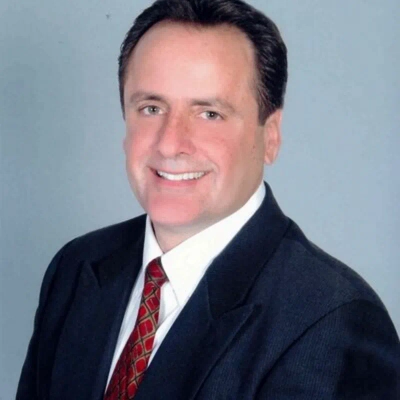 MARC SKIRVIN
MARC SKIRVIN
President, Cash Auto Salvage
Balance Team Needs with Client Demands
I am a chronic people pleaser. This trait has actually contributed to my success in my career in sales and entrepreneurship, as I always strive to keep the customer happy. This behavior stems from my desire for approval in personal relationships and has gradually seeped into my work life over time.
However, at a certain point, it becomes necessary to say no. As a General Contractor, I frequently encounter situations where people expect a ‘yes’ from me. A classic example of this is taking on too much work. When your team is overburdened and exhausted, the inability to say no only adds to their already growing list of responsibilities.
It wasn’t until my inability to say no started to affect my team that I was able to start putting my foot down more. In a way, it’s almost like people-pleasing in reverse – pleasing the people who matter most, in this case, your team. These decisions aren’t easy, but they must be made for the health of those in your organization.
 Samuel Khokhlan
Samuel Khokhlan
Founder, Bluechip Builders
Uphold Core Values When Saying No
I learned that saying ‘no’ is only difficult when you don’t have a stronger ‘yes’ guiding you. Early on, I felt immense pressure to include trendy ‘natural’ ingredients that customers asked for. However, my research showed they were either ineffective or potential irritants. Saying ‘no’ to those requests felt like I was disappointing people, which was a huge source of stress for me as a founder building a community.
My advice for anyone struggling with people-pleasing is to stop focusing on the ‘no’. Instead, define your non-negotiables. What are the core principles you will not compromise on for your work, your health, or your family? When a request conflicts with one of those principles, the ‘no’ isn’t personal. It’s a simple act of upholding your own values. It stops being about them and starts being about you.
 Nikki Kay Chase
Nikki Kay Chase
Owner, Era Organics




